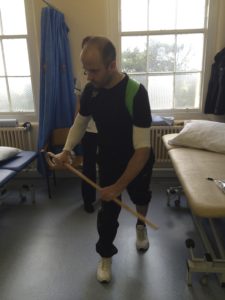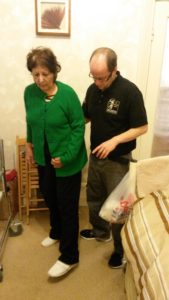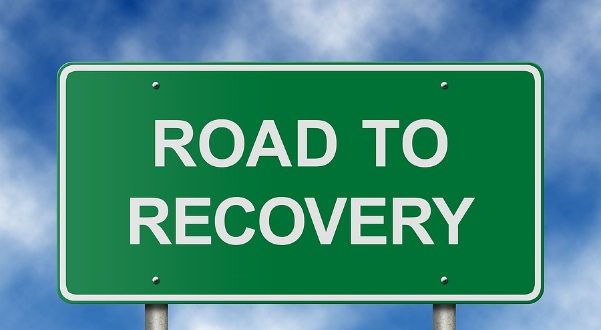
If you are able to transfer from bed to chair independently or with assistance, you may be offered an Early Supported Discharge (ESD) as long as a safe and secure environment can be provided. The team is responsible for making sure your home is suitable, that your family is supported through this change, and you must all be in agreement that this ESD is the best course of action for you.
Your family and/or carers must be involved in every part of the planning for your transfer of care. Your family/carers might need – and should take up – training in caring for you – for instance, in moving, handling, helping with dressing and so on. You should expect to receive the same intensity of therapy and range of multidisciplinary skills available in hospital.
A key point: your family/carers really should plan, whilst you’re still in hospital, for when the community therapy team finishes.
They need to do the Googling and makes some calls. They need to engage an independent physiotherapist (who can literally be gold dust if they are not traditional therapists and instead, do task-training and strength training with you and advise appropriate adjuncts to training) who can come in to your house after community therapy finishes. Be careful that you are offered a reasonable rate.
Or they/you can call ARNI, and get linked with one of my own group of 130 active stroke specialist physios and trainers, who deliver the above at usually a lower cost as they are tasked to offer a reasonably charitable rate including petrol. Cost is only half of the reason that you should think about engaging an ARNI trainer however as there are some literally vital techniques for the stroke survivor’s armoury that they can teach you.
 Early discharges from hospitals are a good idea to free up hospital beds and to get you back to familiar surroundings once again. But only if the support mechanism of your further ‘re-training’ is in place. Often the support can finish too quickly, leaving survivors (and usually their families/carers too) worried about what to do next, and who to go to for further help. Outpatient therapy and community care, or the lack of it, is often quite wrongly, blamed for not solving all problems.
Early discharges from hospitals are a good idea to free up hospital beds and to get you back to familiar surroundings once again. But only if the support mechanism of your further ‘re-training’ is in place. Often the support can finish too quickly, leaving survivors (and usually their families/carers too) worried about what to do next, and who to go to for further help. Outpatient therapy and community care, or the lack of it, is often quite wrongly, blamed for not solving all problems.
Being at home is good. It really is all just much better at home. IF there is support for you there, and you are not just returning back to somewhere where you cannot cope with being, for whatever reason. This needs careful management and forethought.
There is evidence that you can recover physically just as well with a therapist’s or trainer’s help and ‘retraining’ yourself at your home rather than at hospital. It’s good for you psychologically: you will see all your familiar things again – which allows you to feel more ‘normal’ and in control. You might feel that your rehab will not be as intensive now, and you may be right.
But relatively little therapy time (actually a homeopathic dose as far stimulating plasticity was concerned) was actually going on in hospital anyway due to time and resources. The therapists would have loved to have helped you for many, many hours per day but large workloads get in the way, so after community therapy is finished, you just need to ensure that you’re doing something everyday. This is where engaging help and self-rehab comes in – it’s the mix of both of these that will allow the successful creation of a progressive programme for you, which will be the rock around which every intervention from method (eg. CIMT) to technology (eg. upper limb robotics combined with VR) revolves.
So now it’s discharge time? Well, this is good! Don’t fear it.
All your information will be given to the relevant health and social care professionals, and you should have the same comprehensive copy as well. Your family members/carers, and to an extent you too, should try and become as informed as possible. They need to become the ‘expert patient’ on your behalf. They need to know your current and future needs, possibilities for improvement and how and where to get further assistance.
 This information will include a summary of your rehabilitation progress and your current goals, your diagnosis and your current health status. Functional abilities, which include communication needs are included as well as your care needs – washing, dressing, going to the toilet, eating and so on.
This information will include a summary of your rehabilitation progress and your current goals, your diagnosis and your current health status. Functional abilities, which include communication needs are included as well as your care needs – washing, dressing, going to the toilet, eating and so on.
It is vital also that information regarding your psychological needs are fully explored and understood by the community team as you may have cognitive problems and emotional needs at this stage in your recovery. The information about your medications, including your ability to manage them, your social circumstances, which include your carer’s needs, and your mental capacity with regard to your transfer decision are up there on the list for your health care in the community.
Included also is a risk management assessment which must include the needs of vulnerable adults.
Your family member/carers must make sure you are aware of the plans for follow-up rehabilitation and access to health and social care and how voluntary sector services such as Stroke Association, Different Strokes, ARNI etc can help.






One Comment
Extremely valuable information. I had to research all options and roughly followed your suggested path.
Problem is, unlike other illnesses which slowly develop, nobody knows or thinks about the consequences of having a stroke and therefor after the event, are not informed about or helped much by hospital situations. I was fortunate not to have any impaired brain damage and had a pretty proactive mind, hence was able to research things whilst in rehab. My husband is not so pro-active and found all my questions and suggestions a little wearing! As time goes by now, being 20 months after the event, it gets more difficult to resolve desired contacts and information, in order to continue with the same enthusiasm to improve. That is where I find your ARNI days and information extremely valuable and helpful.
I think it is also a shock to find your own GP knows relatively little about possibilities and suggestions of ideas and referrals for the way forward! Hence as you have said, YOU ARE ON YOUR OWN and it’s no wonder that so many people give up after the first few weeks of discharge, when a care team in the community will help for up to 8 weeks!
Long term, something more will have to happen to avoid all the unfortunates without family help, to live a more suitable independent life, rather than being put into (discarded into) a “care home”, where we know all places are required twice over and it will only get worse!!
Sincerely Marion (Withers)